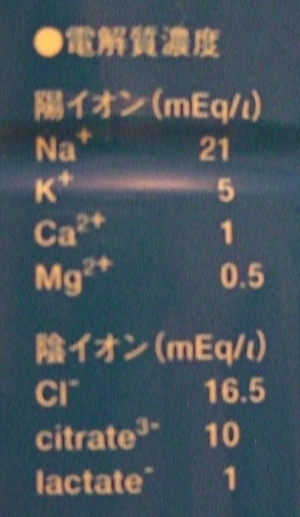I was hydrating the other day with a Pocari Sweat and happened to notice this on the back label (apologies for the image quality):

Ah, ha! I thought. I recognize イオン, and I remember all of those elements from chemistry class. All of the elements on top have plus signs next to them, and the ones on the bottom have minus signs, so 陽 (pronounced よう) must mean “positive,” and 陰 (いん) “negative.” Nice. Keeping your eyeballs peeled will learn you a lot.
This reminds me – these two characters are also used as the positive and negative for test results. The only thing scarier than getting back the results of an HIV test is getting back the results of an HIV test in a foreign language and realizing holy shit I cannot understand a single coddamn thing on this piece of paper. Knowing these two kanji will hopefully prevent you from having to worry any longer than is absolutely necessary. 陰性 (いんせい) is what you are hoping for.
Keep Your Eyes Open was a series I meant to continue after this initial exploration last year. Clearly I haven’t been keeping my eyes open wide enough.

Note: 陰 and 陽 are better known in English (via Chinese) as “yin” and “yang.” A whole lot of things snapped into place for me when I realized this.
I’m still unclear as to what exactly the “Keep Your Eyes Open” theme means, but if it’s got anything to do with things you were ashamed of not knowing until now, then good lord yes please continue this series.
Big fan of keeping your eyes open in public, here, if only for that gratifying feeling of “hey, I JUST studied that!” Happens suprisingly often, and reason enough to keep forging on.
And check this out: the Chinese simplified 陽 to 阳 and, to make a neat logical pair, simplified 陰 to 阴.
Matt and Akaki – Most excellent! Thanks for sharing that…I had no idea.
Daniel L – Not exactly, although I’m sure more examples like this will come up. Basically the theme is “shit that you can ascertain using your eyeballs and a bit of common logic.” I agree wholeheartedly with your second paragraph. It’s amazing how much you’ll see something once you know it. Maybe it’s just easier for your brain to parse it that way.